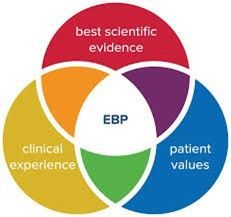Bundled Payments for Behavioral Health Organizations
While the approach may be upcoming, it is not without its flaws.

The behavioral health organization’s ability to make bundled payments work will be a crucial tool as managed care integrates with behavioral health. Bundled payments existed in behavioral health for many years in other forms. Also known as case rates, these reimbursement structures are used for residential facilities. For example, a facility receives a monthly rate for each youth, regardless of the number of services they need. Another example is the Wraparound Approach Services program, which can offer monthly compensation for each youth’s service.
While the approach may be upcoming, it is not without its flaws. United Behavioral Health was sued in 2021 for denying medically necessary treatment due to its bundled payment policy. The concept of cost-sharing can be controversial if it reduces care for certain individuals. Also, in 2020, the law firm of Manatt, Phelps & Phillips, conducted a report for the California Health Care Foundation about their findings in payor models. In their report, they indicated that “the total cost of care model appears ill-suited for behavioral health providers for several reasons: the complexity of dividing responsibility for total cost of care across physical health and behavioral health providers, lack of capital and infrastructure to manage downside risk, the inability of behavioral health providers to influence the full continuum of care, and the lack of standardized managed care contracting templates for behavioral health value-based purchasing (VBP).”
If your agency is looking at the option of bundled payments for services, there may be plausible options. The first assumption to make is that not all client conditions are created equal. For example, the cost for an episode of care for a client diagnosed with bipolar disorder is different than one who has a social anxiety disorder. Therefore, developing a cost per diagnosis or cost per episode approach may be more feasible.
The other key component is data, data, data. Your agency needs to have specific data related to the clients in your geographic area. For example, if you are in Sacramento, California, you will have different treatment models and lengths of stay per episode or diagnosis vs. Los Angeles, California. The same applies throughout the country, If a managed care company comes to you with a request for bundled payments contracting, then you ask them to share their data or use your own. Without hard facts to calculate the costs (plus some cushion), your agency will either deny care to clients or lose money.
Finally, an extra option is to put into a contract specific conditions for exemptions. For example, if your agency contracts for bipolar disorder episodes at a certain rate, a condition can exist that if the client has more than 3 hospitalizations in a specific time, the bundled payments cancel and go to a fee-per-service rate. This allows flexibility to both the payer and the agency.
Many options exist in bundled payments, but behavioral health organizations need to tread cautiously in this area.




